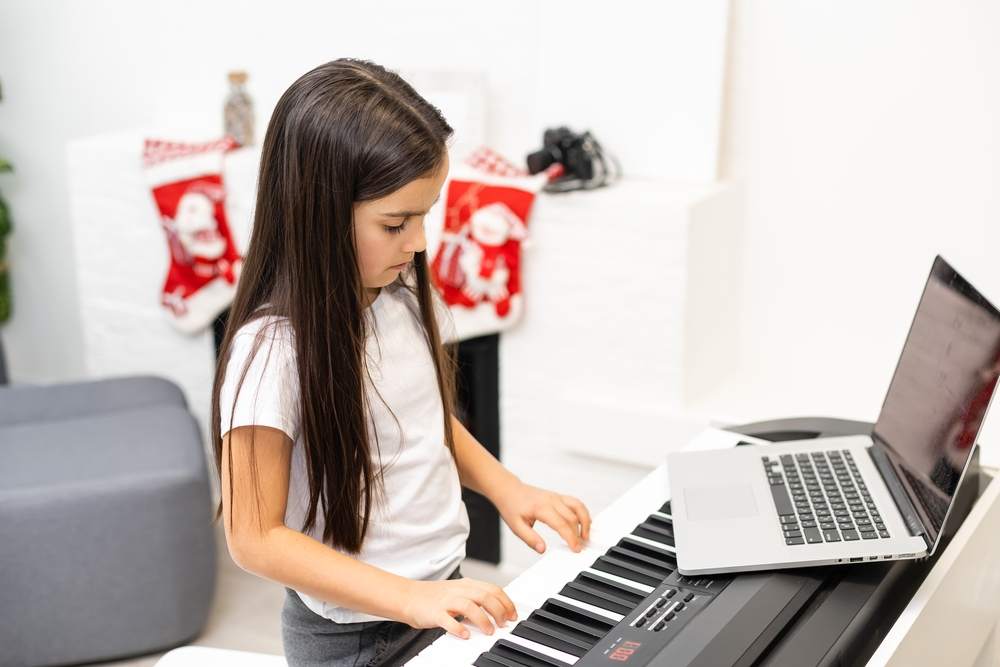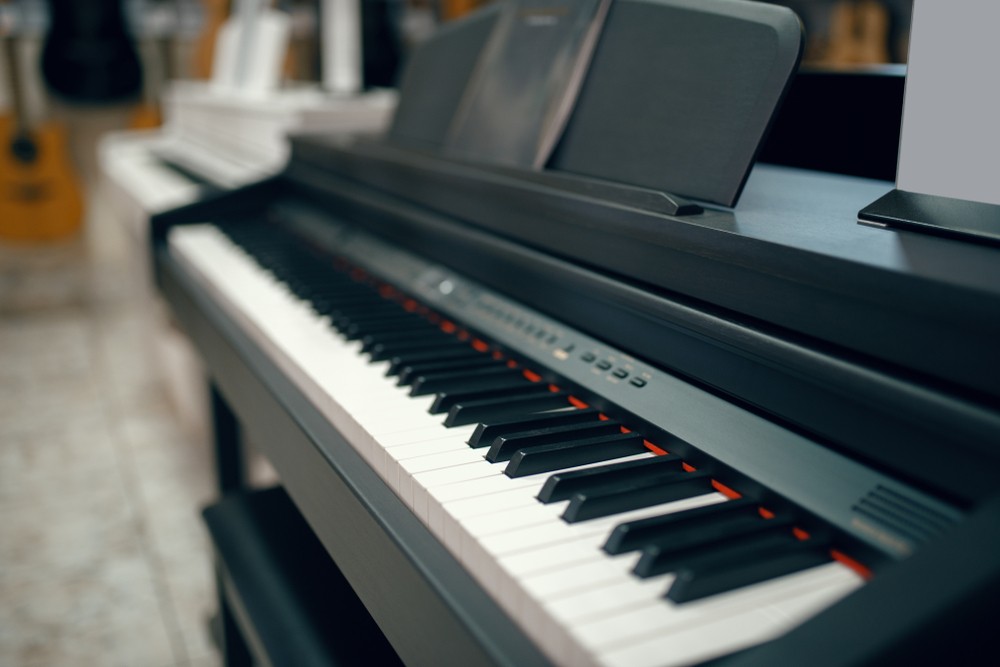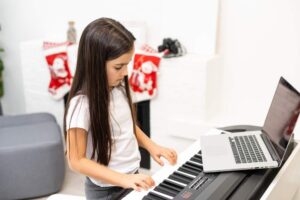
When you are just getting started at learning how to play the piano, you probably have a million questions. Lessons In Your Home provides quality private piano lessons that you can enjoy from the comfort of your home. But how do you know what kind of piano to use? Is the piano you have going to work for you? These are all common questions as you determine what type of piano will work best for you. If you are wondering, “Are digital pianos good?” it helps to understand the difference between digital pianos and other styles. Digital pianos can be a great option for beginners because they offer many features that can help you learn to play. Here’s everything you need to know about digital pianos and what to expect when learning to play the piano.
What Are Digital Pianos?
A digital piano is an electronic musical instrument that simulates the sound and feel of a traditional piano. Digital pianos feature weighted keys and a built-in sound system and can often be connected to a computer or other device to access additional features and functions. Digital pianos come in a variety of forms, from full-sized models with 88 keys and weighted action, to portable models with fewer keys and basic features. A digital piano can commonly be spotted in studios, stages, and educational settings where a traditional piano may be less feasible. It is always best to test out a few instruments to find out the right one for you. Consult with a piano teacher who can also give you guidance on what type of instrument would work best for you based on your playing style and goals.
Digital vs. Acoustic Pianos
The traditional acoustic piano produces sound through the vibration of strings that are struck by hammers. Every time to compress a key on an acoustic piano, it raises the hammer to strike the string and create sounds. Acoustic pianos are heavier and larger than digital pianos and require tuning, repairs, and regular maintenance. However, a digital piano generates sound using samples of real piano sounds or through a process called digital synthesis. A digital piano can actually produce a wider range of sounds and may include features such as different instrument sounds, a metronome, recording options, and more.
Digital Piano vs. Keyboard
Digital pianos and keyboards are both electronic musical instruments, though they have some key differences. A digital piano is designed to mimic the look, feel, and sound of an acoustic piano. The keys are often weighted or semi-weighted to simulate the resistance of the hammers in a traditional piano. Digital pianos often have features like pedals that allow for a more authentic piano-playing experience. A keyboard, on the other hand, is more versatile and has a wider range of instrument sounds and features. Keyboards have piano sounds but also other sounds like orchestral instruments, drums, or synthesized sounds. Digital pianos are generally considered to be more suitable for serious pianists or those interested in an instrument to replace an acoustic piano.
5 Benefits of Learning on a Digital Piano

When considering whether to get a digital piano for your private lessons, there are a few key benefits to consider.
Digital Pianos Are More Affordable
Digital pianos offer greater options for affordability than traditional acoustic pianos, which can make them a more accessible option for beginners. This can be especially beneficial for those who are not sure about committing to the expense of an acoustic piano. There are many great affordable digital keyboards for beginners.
Digital Pianos Are Space-savers and Portable
Digital pianos also provide convenience for the owner because they are generally smaller and more portable than traditional acoustic pianos. A digital piano is easy to move around and even take to lessons or performances.
Digital Pianos Allow Volume Control or Practicing with Headphones
Digital pianos create a variety of sounds, and you can control the volume while you play. You can also simulate the sounds of a grand piano, electric piano, or even an organ while you play. The volume control or headphones option is great for practicing piano in a small or shared living space.
Digital Pianos Have a Record and Playback Feature
Digital pianos come with built-in features like the ability to record what you play and listen to it again. This can be a great option to use as a beginner when learning different sounds and while practicing. A digital piano may also connect to apps or other software to support your lessons.
Digital Pianos Are Low Maintenance (No Tuning Needed)
Digital pianos are low maintenance and do not require tuning, unlike acoustic pianos, which require regular maintenance. When you sit down to practice the piano, your digital piano will always be in tune.
Is it Possible to Practice Classical Pieces on a Digital Piano?
Yes, it is possible to practice classical pieces on a digital piano. Many digital pianos have high-quality piano sounds that mimic the sound of an acoustic piano so closely that you can hardly tell the difference. Additionally, many digital pianos come with weighted keys, which can provide a similar feel to the acoustic piano and help you develop proper finger strength and technique. While digital pianos can be a great option for practicing classical music and other styles, it is worth noting that the key weight can vary from digital piano to acoustic piano. It can be beneficial to have access to or practice on a traditional piano when possible to give you the best experience and feeling of playing piano.
What to Consider in Choosing a Digital Piano
With practice and dedication, you can become the pianist of your dreams no matter what style of piano you learn to play on. When choosing a digital piano, there are a few factors to consider to ensure you get a piano that is well-suited to your needs and preferences. The key weight, also known as key action, refers to the amount of resistance the keys offer when they are pressed. A heavier key weight requires more effort to press down, which can help develop finger strength and control for pianists. It’s important to find a piano with key action that feels comfortable to you and allows you to use proper finger movements and dynamics for the type of music you wish to play. The number of keys may vary from a traditional piano, so it can take getting used to if you swap back and forth between two styles. The price can also influence your decision, and it’s important to find a piano that fits your budget.
Lessons In Your Home offers private piano lessons where you will receive hands-on instruction, personalized attention, immediate feedback, and performance opportunities to share what you have learned with family and friends. Get started with piano lessons at home when you call or visit us online at Lessons In Your Home.
